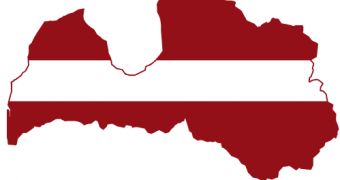A few days ago, we learned that Latvia’s Foreign Minister Edgars Rinkevi fiercely opposed the extradition of Deniss Calovskis to the United States. The US has charged the Latvian national for his role in the development of the Gozi malware.
Rinkevi has argued that the possible 67-year prison sentence that awaits Calovskis in the US is way too harsh. The official has also highlighted the fact that there’s not sufficient evidence to demonstrate that the crimes committed by the man took place on US soil.
Despite protests from Rinkevi and many other Latvians, Calovskis will be extradited. The country’s ministers have voted 7 to 5 in favor of the extradition, and one abstained, the Associated Press reports.
It’s uncertain when the extradition will take place, but Latvia’s Justice Ministry stated for AP that it would take at least several days.
Just before the vote, Latvia’s chief prosecutor told ministers that there was enough evidence to link Calovskis to the crimes he’s accused of.
The decision to extradite the alleged cybercriminal is final, but his lawyer has revealed that he plans on filing an appeal with the European Court of Human Rights.
In his earlier statement, Foreign Minister Edgars Rinkevi argued that the over 60-year prison sentence the US was prepared to hand out to the Latvian might violate the European Human Rights Convention.
Calovskis’ co-defendants are Romanian national Mihai Ionut Paunescu, believed to be responsible for running a “bulletproof” hosting service used to distribute the Gozi malware, and Russian man Nikita Kuzmin, who allegedly created the malware.
Kuzmin was arrested in November 2010 in the US and has already pleaded guilty to computer intrusion and fraud charges. Paunescu was arrested in December 2012 in Romania.

 14 DAY TRIAL //
14 DAY TRIAL //